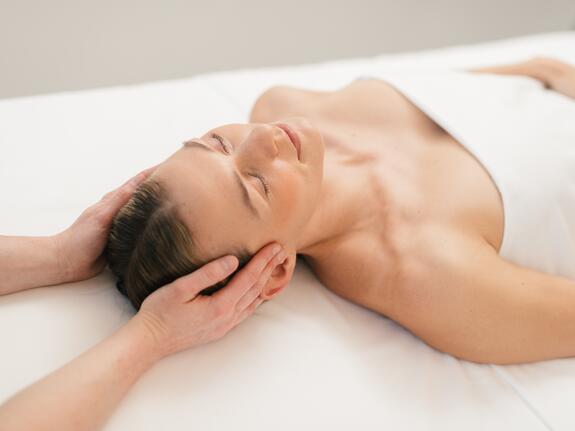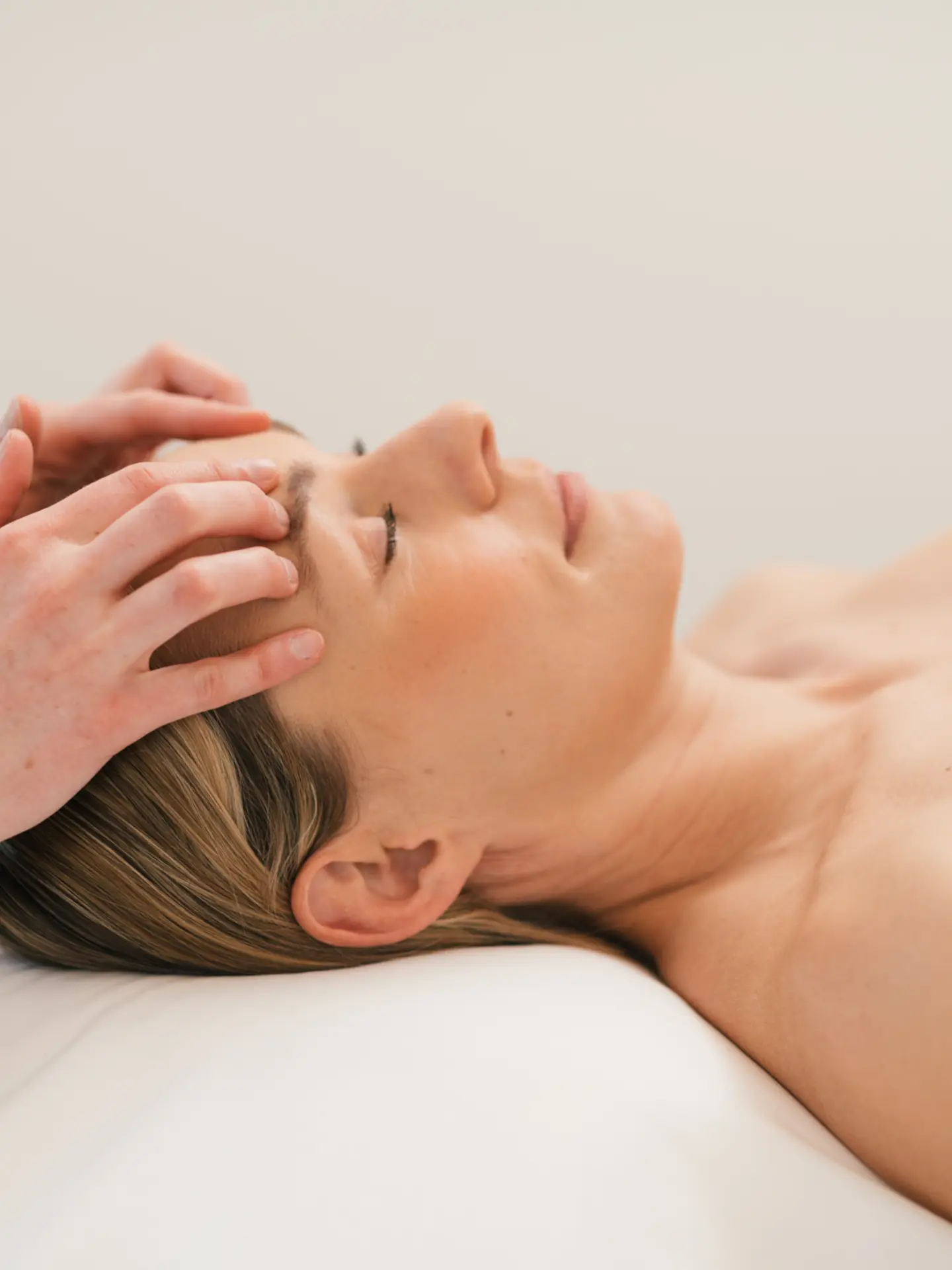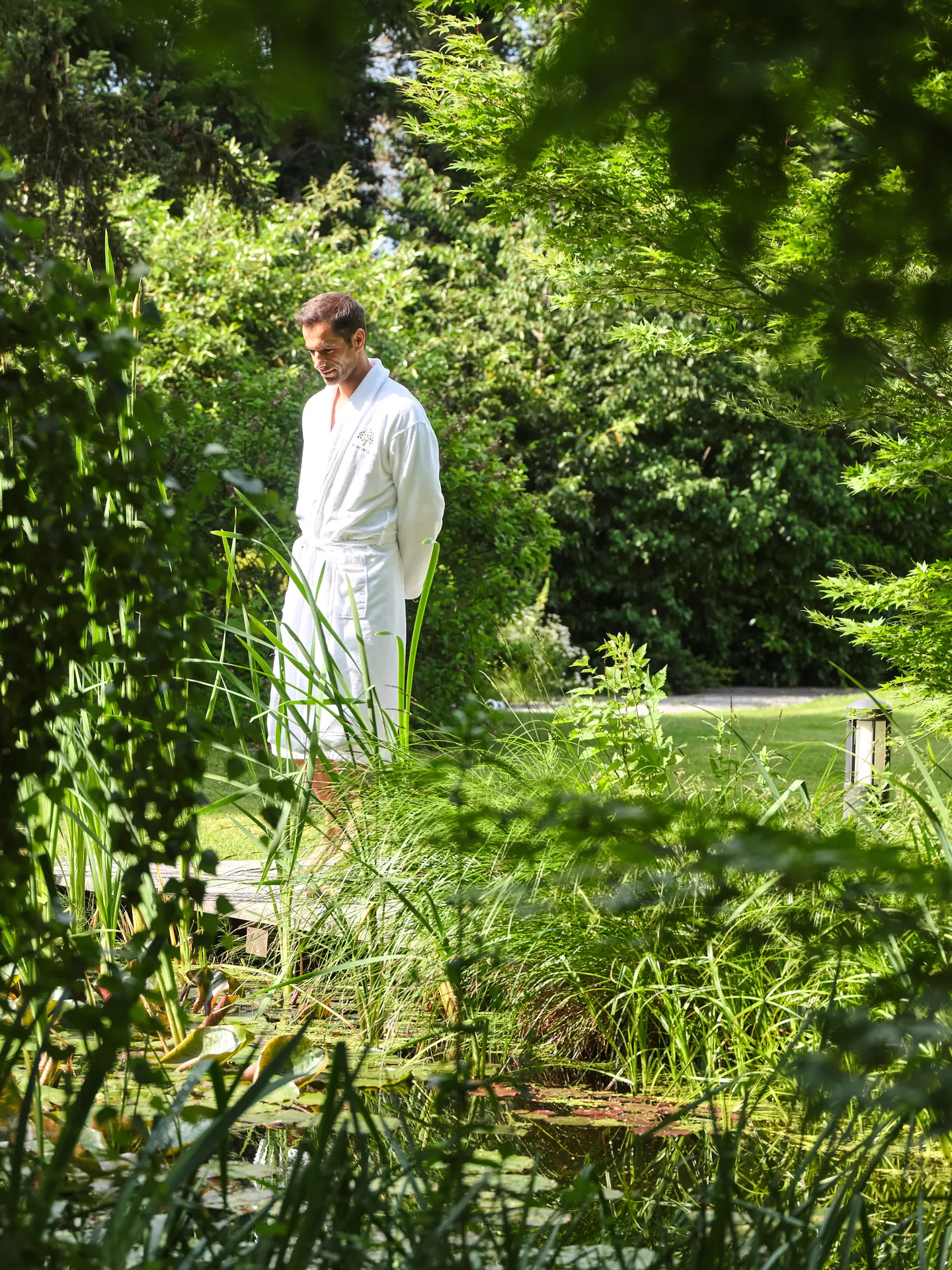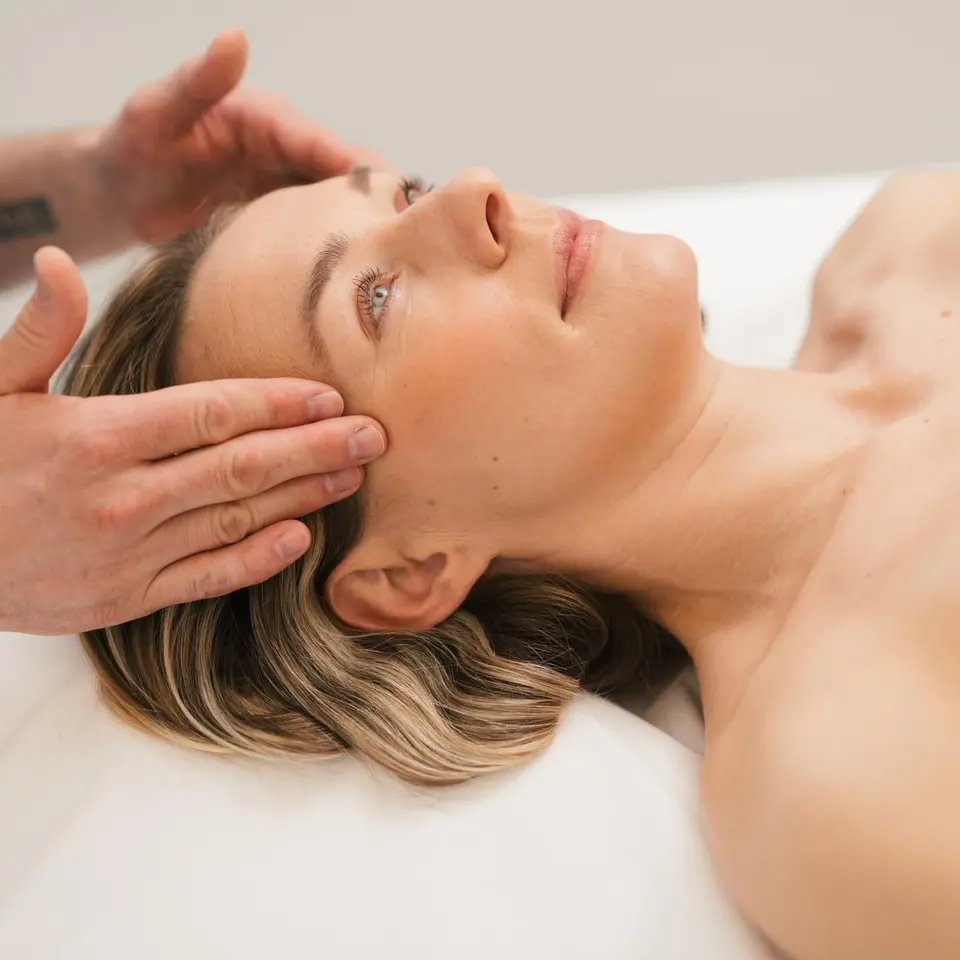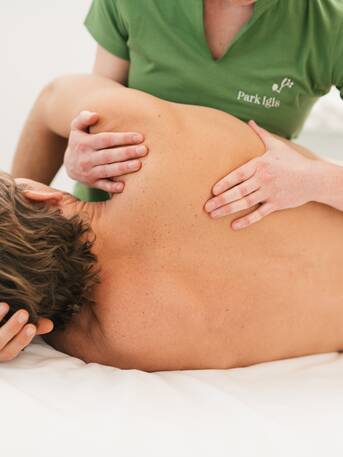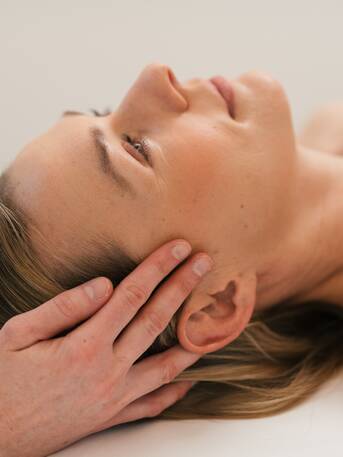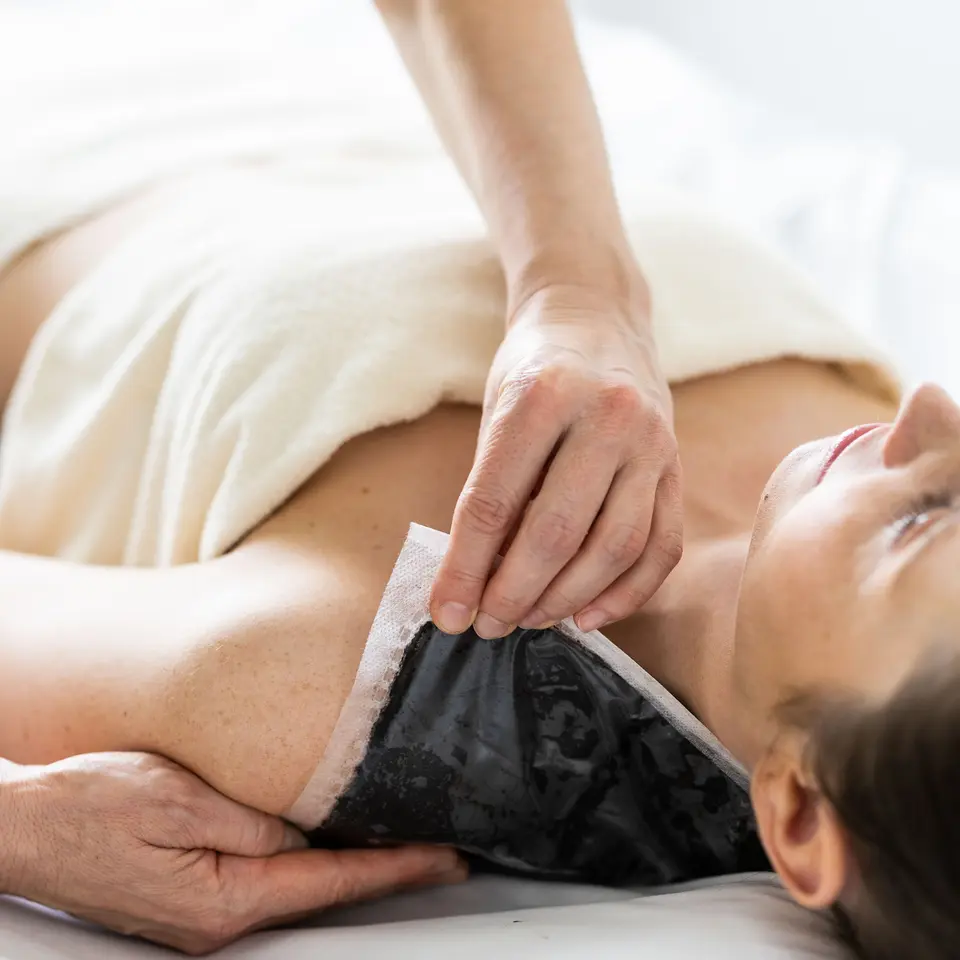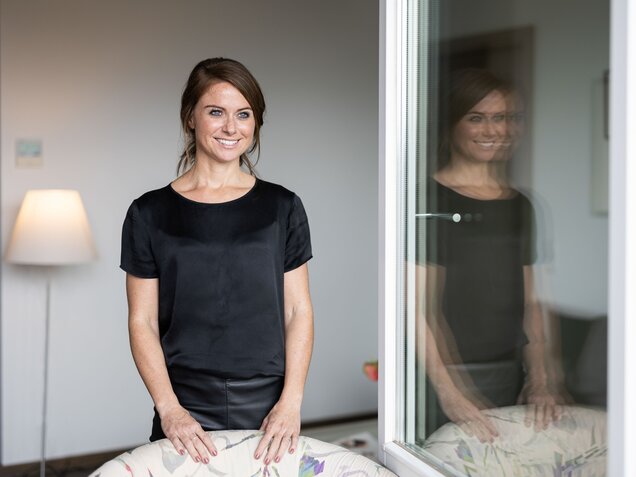Burnout, stress, mental-health crises
Life can be tough at times. Really tough. When burnout, stress and mental-health crises turn our world upside down, how best to stabilise the situation and find your way back to inner peace? Dr Melanie Robertson, clinical neuropsychologist and health psychologist at the Park Igls Medical Spa Resort, speaks about the physical early-warning signs and how to take the first steps on the path to recovery.
The symptoms
Mentally overwhelmed
Each day is exhausting, each night a fight to find sleep. Your appetite has vanished, replaced instead by a lack of motivation and a permanent irritability. What's going on? It's a natural reaction by your body warning you: enough is enough – things can't go on this way. Stress, pressure, worries and anxiety can lead to a situation in which we feel mentally overwhelmed and no longer able to cope.
So what next? "In situations like these our nerves are bombarded with information and cannot process what is happening," explains Dr Melanie Robertson, clinical neuropsychologist and health psychologist at Park Igls. "This means our body is in a permanent state of alarm. It can be incredibly exhausting if this state carries on for an extended period of time."
Listen to your body
What should I do if I am feeling exhausted?
How can we notice if we are mentally exhausted and what should we do in such situations? Our body is a reliable indicator of our overall wellbeing. We should therefore pay attention to what it is saying and listen out for warning signals. These often include problems sleeping, high blood pressure, tense muscles, digestive issues and in extreme cases even stomach ulcers and cardiovascular diseases. This is the point at which we really do have to stop, think and act.
Such situations come about when we push things too far. It is high time to give both body and mind a time-out. After all, that is what they are trying to tell us. Yet many people ignore these warning signs or are unable to correctly interpret them. Dr Robertson emphasises that after following burnout or exhaustion it is essential to take an extended break to rest, recover and reset.
What are the first steps I should take?
How to react in such a situation? The first step is to accept the situation – to admit to yourself that you are stressed and exhausted. Only then can you begin the journey back to inner peace and balance. Of course, things won't change overnight – but there are some changes you can adopt straight away to start steering the ship back in the right direction.
One of those things, explains Dr Robertson, is having a well-structured daily routine. That means regular meal times as well as going to bed and getting up at the same time every day. What may sound like common sense is in fact often a real problem in times of major stress and upheaval. "Many people going through a stressful period in their lives forget to take care of the most basic needs. That is where creating a structure in your daily routine with regular meal times and regular sleep times can help. Sleep in particular is essential. We need a good night's sleep in order to rest and recover for the following day," says Dr Robertson.
Short breaks
A good way to prevent excessive stress
Several mini-breaks spread across the day can be very effective when it comes to dealing with existing stress or preventing chronic stress from arising. Studies have shown that brief pauses from work of up to 10 minutes at a time can reduce tiredness, increase energy levels and improve performance. Each short break is like a valve, releasing the pressure which builds up over the day. Dr Robertson recommends several short breaks apread across the day during which you should make a conscious effort to do something to help you find inner peace and relaxation.
And what about holidays? It is generally the case that several short holidays across the year are better than one long holiday. People suffering from exhaustion or burnout should take an extended time-out at a place like Park Igls where over a period of several weeks they can get away from it all and begin to restructure their daily routine.
What are the best ways to combat a lack of energy and excess stress?
Fundamentally, there are symptomatic approaches and approaches that get to the root of the problem. Symptomatic approaches include the relaxation methods already presented, such as progressive muscle relaxation, autogenic training and physical exercise. There are also breathing techniques and imaginative approaches. Depending on your personal preference, these can all have a calming and relaxing effect.
However, to get to the root of the problem, Dr Robertson recommends coaching in order to identify the underlying causes of the stress and to address these accordingly so as to avoid spiralling back into the same situation again. Sometimes just one to three coaching sessions can be enough to bring about long-term improvements. Coaching also covers practical changes to minimise stress in everyday life.
How can I get started?
As already mentioned, many people suffering from stress and exhaustion do not have a regular daily routine. A good first step is to create such a routine and bring more structure into your life. That means having regular meal times, taking your time when eating, going to bed and getting up at roughly the same time each day. As well as a structured daily routine, enough sleep and regular mini-breaks throughout the day, it also helps to make other small changes to daily life. Dr Robertson recommends digital detoxing. As well as the many benefits they offer, smartphones also bring a lot of anxiety into our lives and cause us to be permanently bombarded with information. This communication overload results in additional stress. It therefore makes sense to put a stop to the constant pings, rings and alerts, especially when you are already feeling stressed.
Hobbies, sport and exercise as well as spending time in nature and meeting friends are also important factors when it comes to rest and relaxation. Social networks have a very important function, Dr Robertson underlines, so friends and families of people suffering from stress and burnout can play a key role in two ways. Firstly, friends and family members can help the person affected find balance in their lives through shared activities. Secondly, they can free up time for the stressed person by looking after their children, for example, and therefore giving them the chance to do something else such as practising sport, enjoying a spa day or going to a concert.
This specialised programme helps for degenerative diseases of the nervous system such as Parkinson’s or multiple sclerosis.
According to health psychologist Dr Robertson from the Park Igls Medical Spa Resort, any of the following measures are a good way to bring about rest and relaxation: a structured daily routine with regular meals and sleep times, short breaks in daily life, relaxation techniques, breathing exercises, digital detoxing to avoid communication overload, hobbies, sport and exercise, time spent in nature and social activities. Friends and family play a particularly important role in this context.
It depends on how exhausted you are. People suffering from mild stress or exhaustion may find short, regular breaks throughout the day are enough to help. In cases of severe exhaustion or burnout, people should take several weeks off, if possible under medical supervision, to get away from it all and start restructuring their daily routine.
The same principle applies to sportsmen and sportswomen as to other people: stress and strain should be followed by rest and relaxation. Sleep, relaxation techniques, methods like progressive muscle relaxation, a sufficient and healthy intake of nutrients and fluids as well as moderate exercise in the form of warm-ups and cool-downs as an integral part of training are some of the key tools used by athletes to recover.
The best things for recovery are breaks throughout the day and a structured routine with regular, healthy meals and sleeping times. Reducing digital input from media consumption and mobile phones also helps. Periods of action should be followed by periods of relaxation. Relaxation techniques can help you to find inner peace.
Regular meal and sleep times, short breaks from work throughout the day, relaxation techniques, breathing exercises, digital detoxing to avoid communication overload, hobbies, sport and exercise, time spent in nature, social activities, time with friends and family as well as coaching with a professional are all useful to find your way back to greater inner peace and balance. Fasting methods such as the detoxifying diet at the heart of Modern Mayr Medicine also contribute to rest and recovery.
We distinguish between physical and mental recovery, though the two are of course closely connected. Symptomatic approaches such as detoxification, healthy eating, relaxation methods like progressive muscle relaxation, autogenic training and exercise, breathing exercises and imaginative approaches are used for physical regeneration. Mental regeneration is about getting to the root of the problem. Coaching is a good way to get to the core of what is causing the stress and to identify the steps needed to avoid falling back into the same old habits.
The first step is to give structure to your daily life with a fixed routine, ensure regular and healthy meal and sleep times, integrate breaks into your day and create periods of undisturbed rest. If you are feeling very stressed, it is advisable to take a break for several weeks. As well as relaxation techniques, sport, exercise and spending time in nature, it is also a good idea to take part in coaching sessions. They help you to identify the factors triggering your stress and take steps to prevent you from falling back into the same bad habits.
Park Igls Blog
You might also be interested in these articles:
Details on Modern Mayr Medicine and its benefits for your health can be found on our website.
